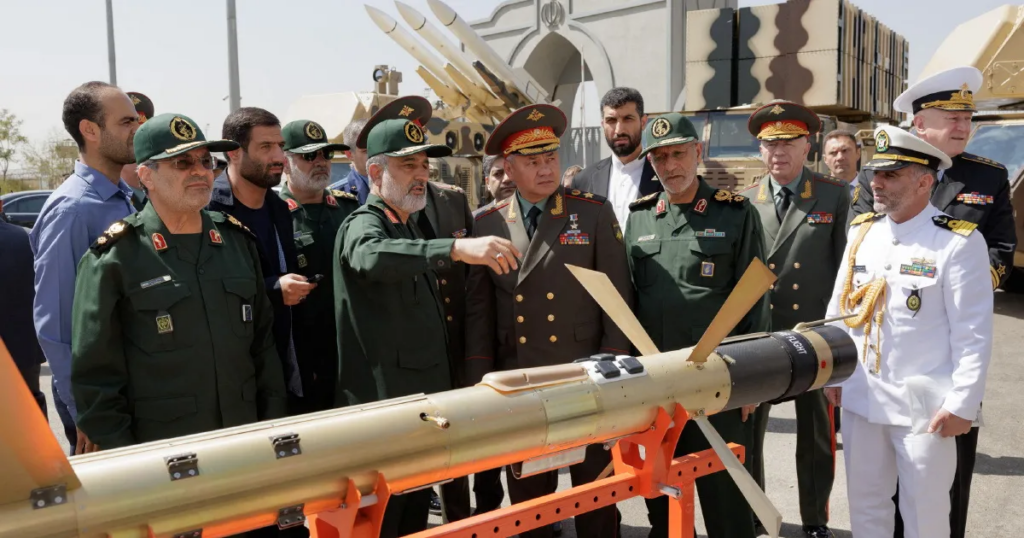|
Getting your Trinity Audio player ready...
|

- Russia, trying to wriggle out of sanctions imposed following its actions in Ukraine, has discovered a good old friend in Iran-a longtime partner on the problem of economic survival.
- Iran gets beyond Russian military technology; it also receives intelligence and, through Russia’s relations with other significant actors, potentially greater access to advanced air defenses.
- The Russia-Iran alliance poses challenge and opportunity for India as its strategic partnership with both the countries is very important in dimensions of energy and regional security.
As the balance of regional power continues to shift geopolitically, it has been observed that Russia and Iran are coming closer in defense and economic cooperation. Such cooperation can define power relations throughout vast regions of Eurasia and the Middle East. This new comprehensive accord between Moscow and Tehran does not merely constitute an extension of their long-standing alliance but represents an important step within their effort to counterbalance Western influence, especially in light of the Ukraine war and Middle East conflicts.
Given the fact that Iran and Russia had a very complicated history from time to time, where their relations had been dominated by mutual convenience rather than deep strategic alliance, this new wave of cooperation between the two countries, particularly its latest expansion over the defense sector, means a stronger and much more organized method of challenging the Western world. This alliance finds its core agenda based on shared opposition to Western sanctions and pressure. Russia, trying to wriggle out of sanctions imposed following its actions in Ukraine, has discovered a good old friend in Iran-a longtime partner on the problem of economic survival. Iran gets beyond Russian military technology; it also receives intelligence and, through Russia’s relations with other significant actors, potentially greater access to advanced air defenses.
Cooperation between two such neighbors is not simply a bilateral matter but is seen as serving broader strategic purposes. Iran has already supplied Russia with Shahed drones that have proven crucial to Russia’s continuing attack on Ukraine. Tehran seeks a piece of Russian missile technology and advanced air defense systems, like the S-400, which would significantly enhance its security position against regional threats such as Israel and the U.S. presence in the Middle East. The military exchange has also come to be seen as an instrument by which Iran can enhance its influence in the region, primarily through proxies in Lebanon, Syria, and Iraq.
Economically, both will work on second- and third-tier models to bypass more Western sanctions. They are working together in areas of shadow banking systems, graymarket oil sales, and illicit trade networks, pooling their resources to resist the global rules-based order led by the West. All these initiatives are part of a bigger dream to build more resilient sanction-proof economic infrastructure and maybe even develop joint energy production and infrastructure development.
This critical consequence of the developing alliance for the West is that both Russia and Iran further integrate in their military and economic relationships are positioning themselves as counterbalances to what U.S. and NATO influence is there in Europe and in the Middle East. This would undermine the ability of the West to isolate these regimes from a diplomatic and economic standpoint. Cooperation on advanced weapons systems and military technology also raises issues of dangerous proliferation in already volatile regions.
This shifting alliance poses challenge and opportunity for India. Its strategic partnership with both Russia and Iran is very important in dimensions of energy and regional security. But balancing act with Western powers, particularly the United States, gets complicated with closer ties between Russia and Iran. India needs to maneuver carefully in this new reality so that its national interests, in dimensions of energy security and regional stability, are not compromised.
In conclusion, the Russia-Iran defense pact marks a sea change in international relations. Because both countries seek to challenge the dominance of the West and to reshape world order, their cooperation portends far-reaching consequences for security and diplomacy in both the Middle East and Eurasia. The ability to maintain strategic autonomy in such a complex environment will determine the future role of India on the global stage.
Saisha is pursuing a Bachelor of Diplomacy and Foreign Policy at the JISA, O.P. Jindal Global University. Her areas of interest include economics, business, diaspora studies, and diplomacy. Views expressed are the author’s own.
